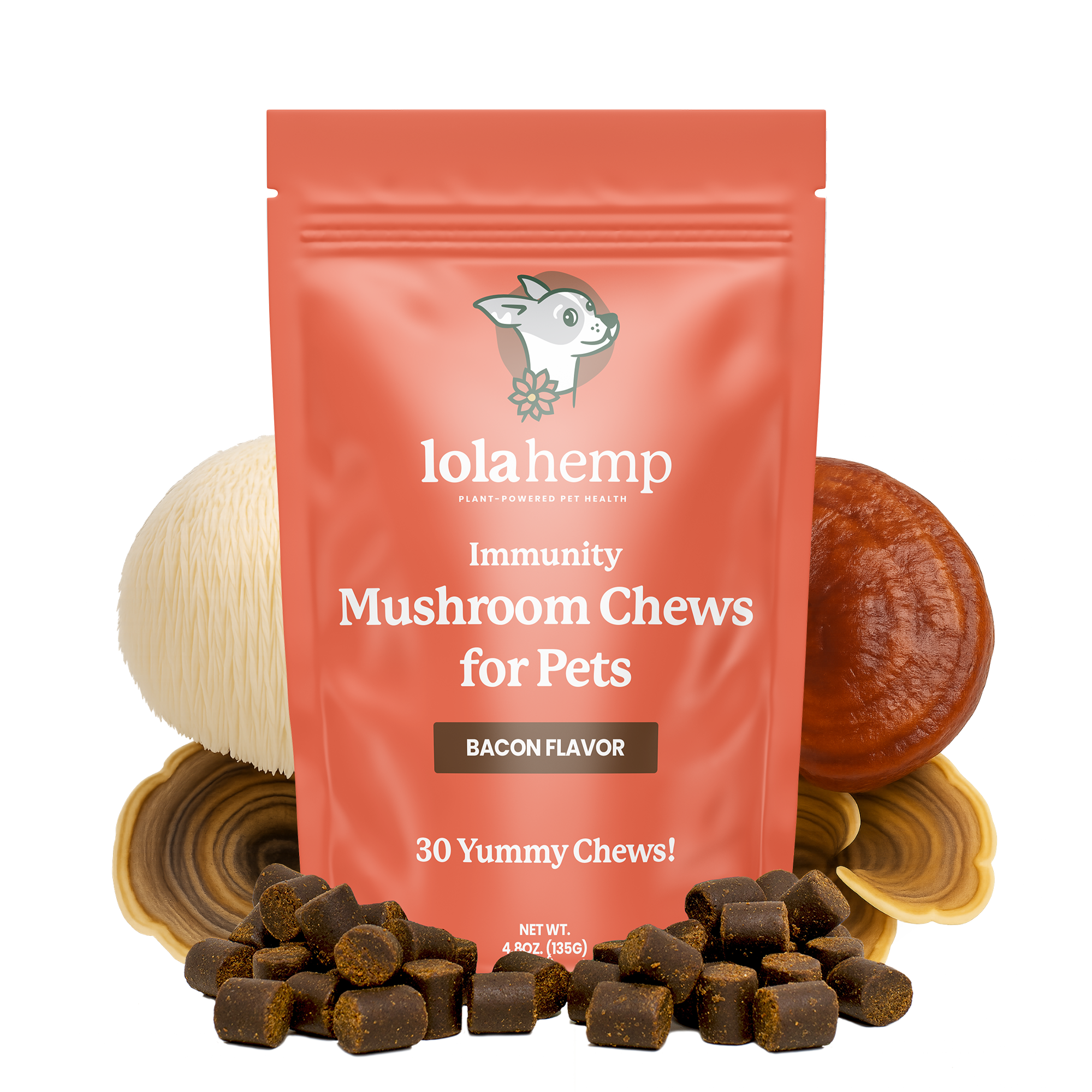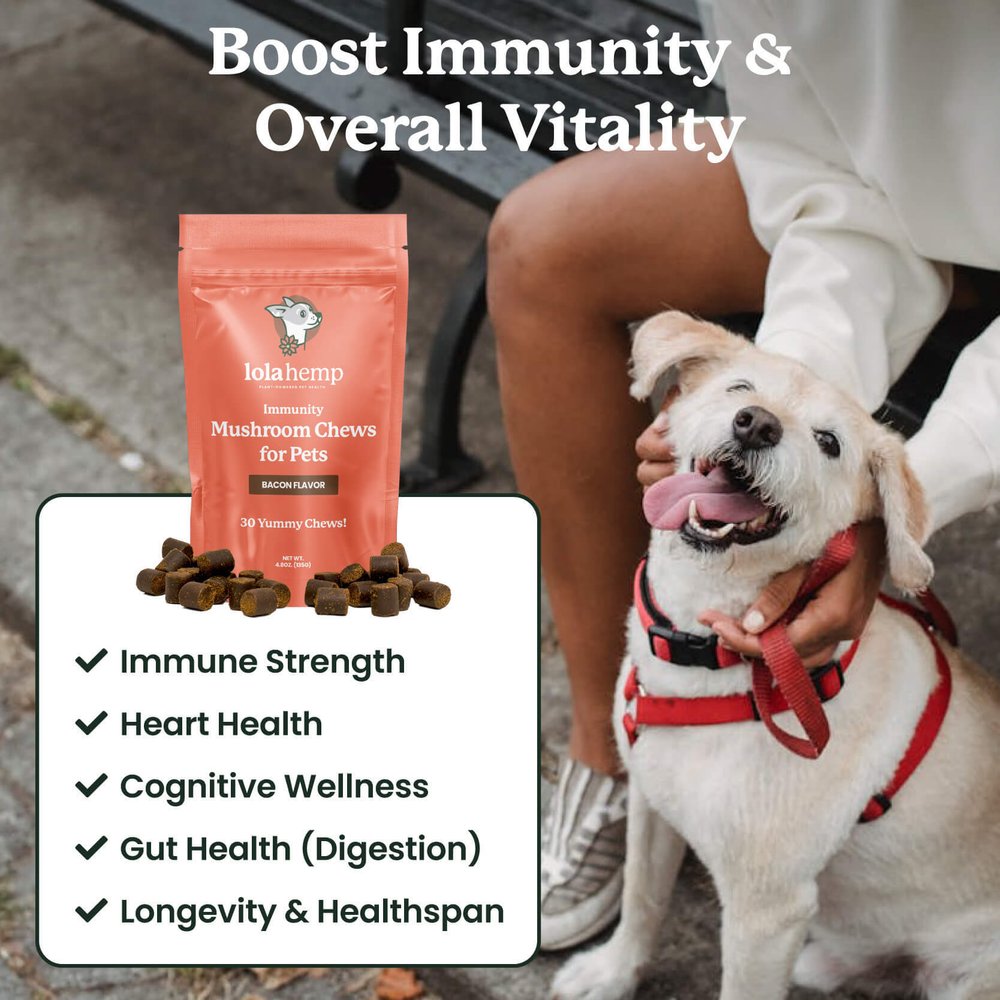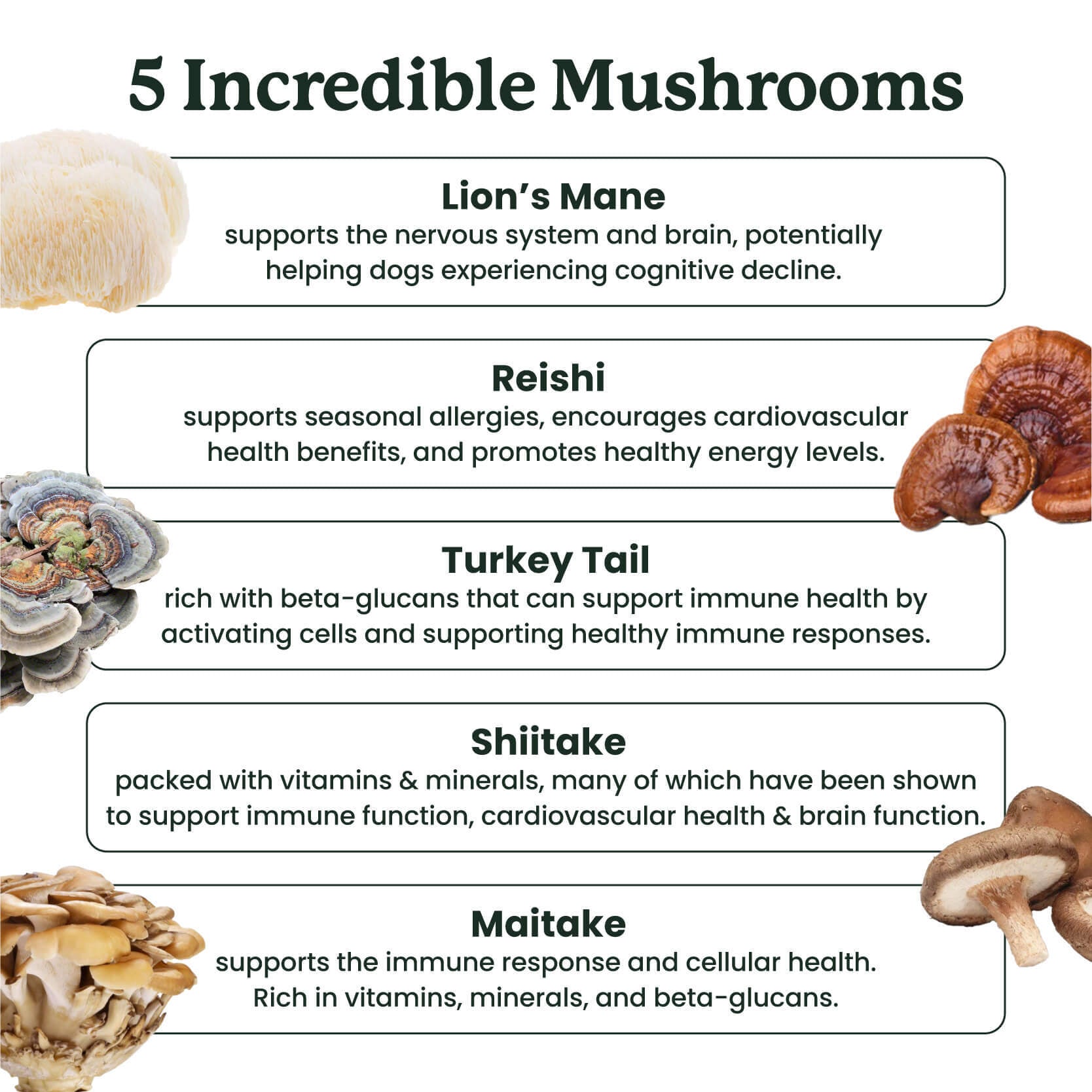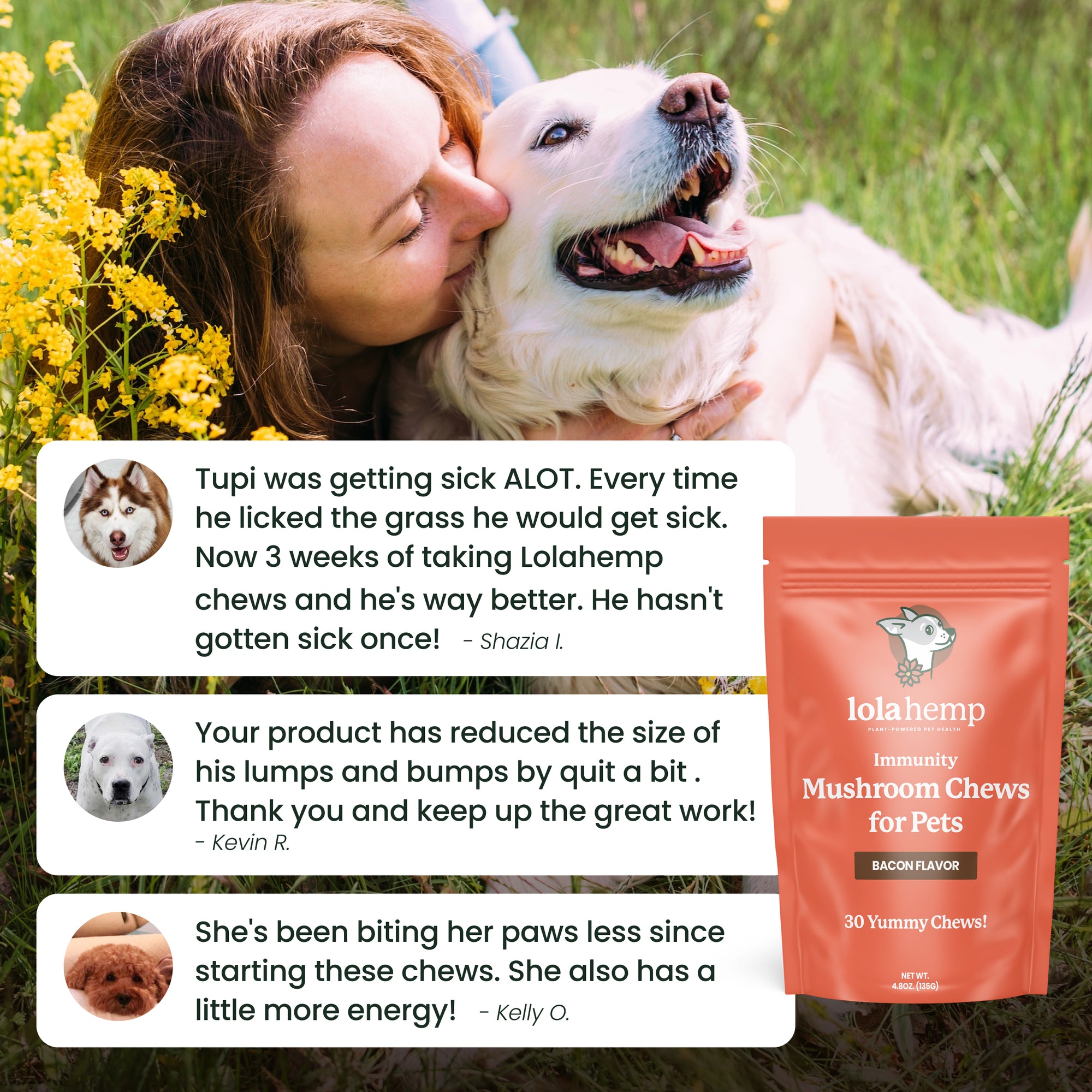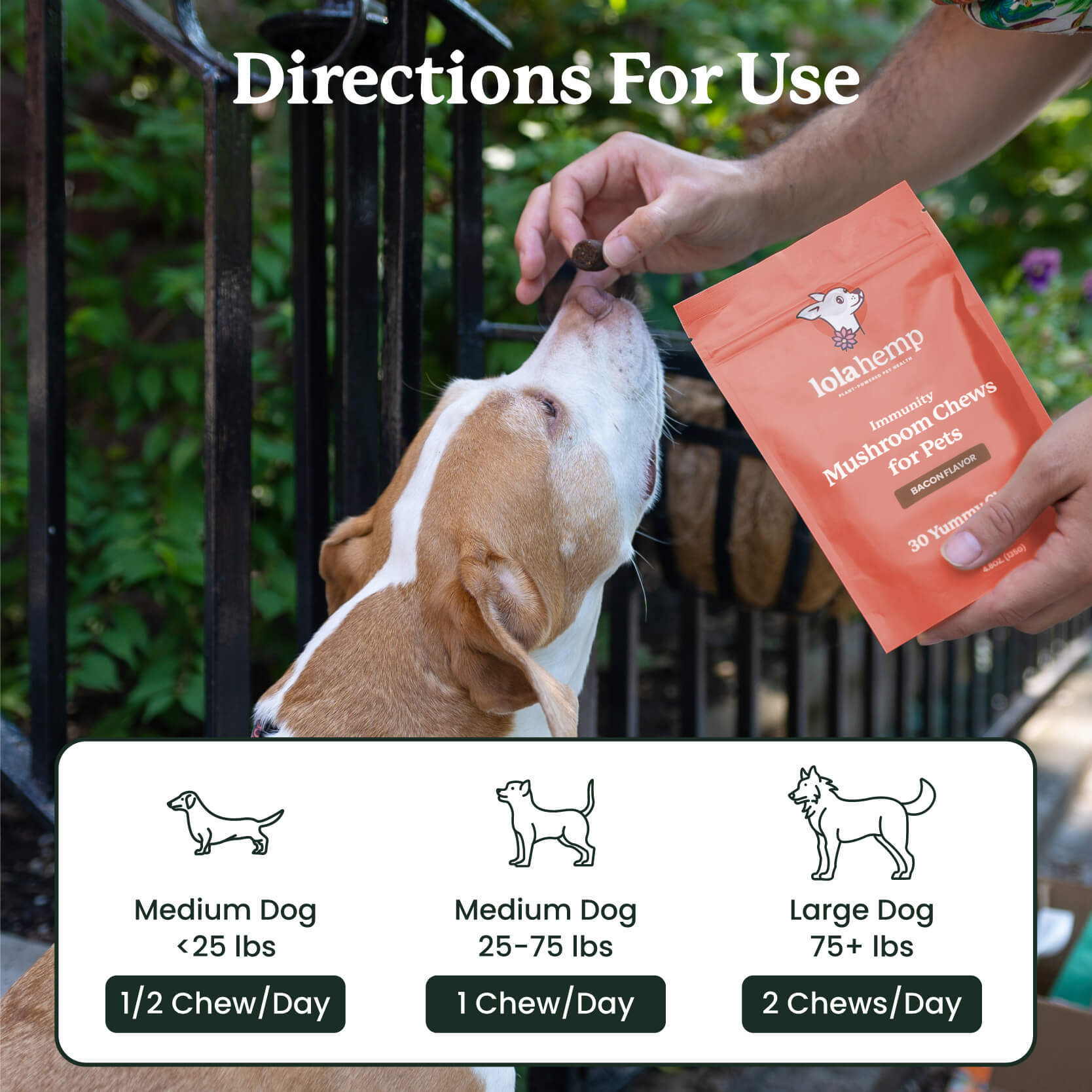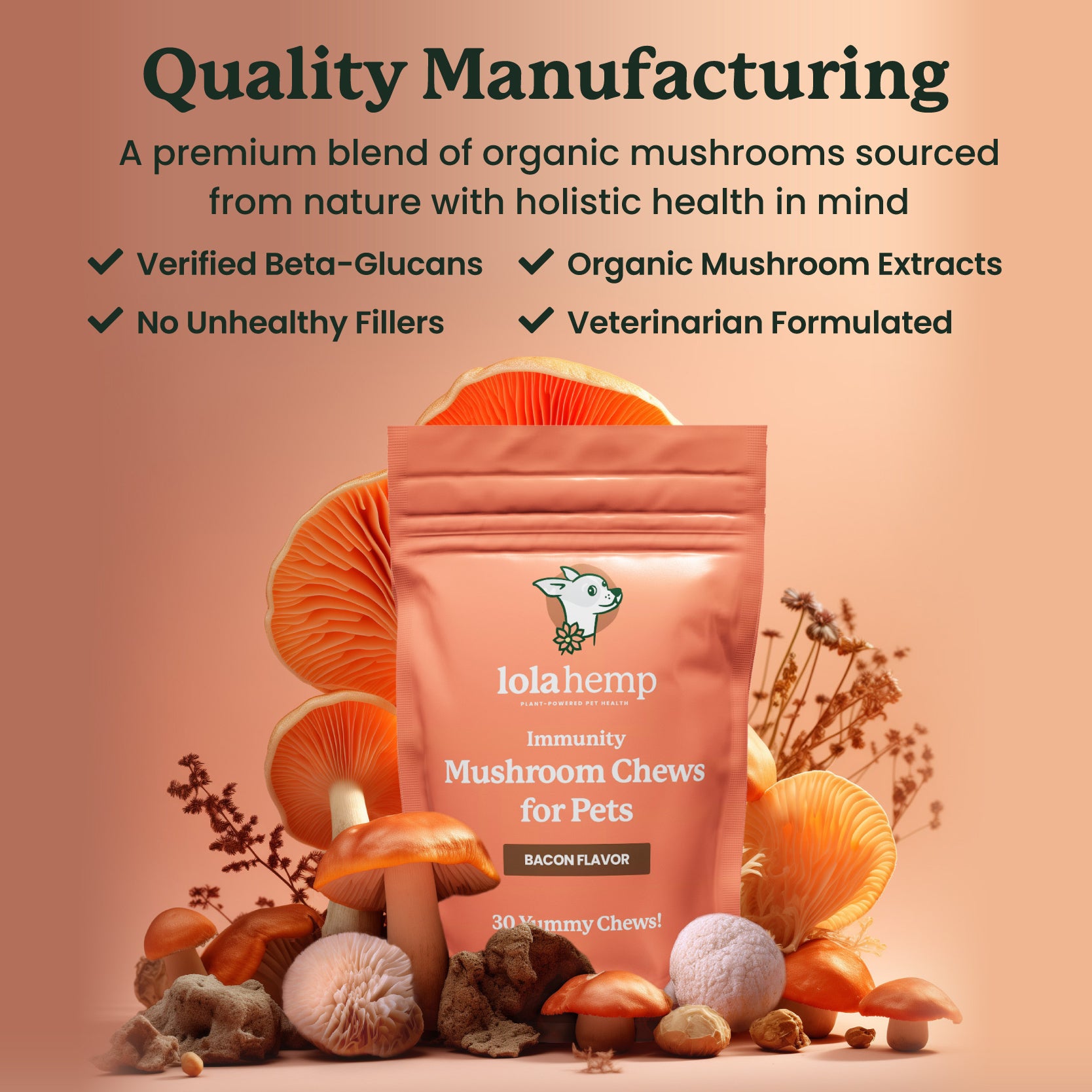Amino acids are essential building blocks of protein and play a crucial role in your dog’s overall health. These compounds are involved in numerous biological processes, from supporting muscle growth to maintaining a healthy immune system. Understanding the value of amino acids can help you ensure your dog gets the nutrients they need to thrive.
If you're considering boosting your dog's amino acid intake with natural foods, make sure to review each ingredient for its canine safety. An estimated 30-40% of human foods for dogs can be dangerous and toxic, so using caution is very important.
- What Are Amino Acids and Why Are They Important for Dogs?
- Which Amino Acids are Important for Your Dog's Health?
- The Role of Amino Acids in Mushrooms for Dogs
- How Amino Acids Help with Muscle Growth and Recovery
- The Role of Amino Acids in Immune System Support
- How to Ensure Your Dog Gets Enough Amino Acids
- Conclusion
- Frequently Asked Questions about Amino Acids for Dogs
What Are Amino Acids and Why Are They Important for Dogs?
Amino acids are organic compounds that are necessary for the production of proteins. These proteins are vital for tissue repair, immune function, and other critical bodily functions. There are 20 amino acids in total, 12 of which are non-essential (meaning your dog’s body can produce them) and 8 are essential (which must be obtained through their diet).
Essential amino acids, such as lysine, methionine, and tryptophan, are critical for your dog’s health. Without an adequate supply of these amino acids, dogs may experience health issues like poor coat quality, weakened muscles, or compromised immune function.
Which Amino Acids are Important for Your Dog's Health?
Amino acids are crucial for maintaining your dog's overall health, supporting various bodily functions, and promoting growth, repair, and energy production. There are 20 amino acids in total, but some are particularly important for dogs:
- Arginine – Essential for waste removal through urine and maintaining proper blood flow.
- Taurine – Important for heart health, eye function, and the development of the nervous system.
- Leucine – Supports muscle growth, repair, and recovery.
- Methionine – Acts as an antioxidant, supporting liver health and detoxification processes.
- Lysine – Vital for protein synthesis and immune function.
- Glutamine – Helps with digestive health, particularly the lining of the intestines.
- Valine – Important for energy production and muscle metabolism.
- Phenylalanine – Used in the synthesis of important neurotransmitters like dopamine and norepinephrine.
Dogs cannot produce all of these amino acids naturally, and they must be obtained through their diet. A balanced diet with high-quality protein sources, like meat, fish, and eggs, ensures that dogs get the essential amino acids they need.
The Role of Amino Acids in Mushrooms for Dogs
Some mushrooms, such as Reishi, Maitake, and Lion’s Mane, naturally contain amino acids that are beneficial for dogs. These amino acids support various functions in your dog’s body, including maintaining a healthy immune system and promoting muscle recovery. Incorporating mushrooms into your dog’s diet can be an excellent way to supplement their amino acid intake, especially if they have a more limited protein source.
For example, our Immunity Mushroom Chews are specially formulated to include mushrooms that are rich in amino acids, providing your dog with a natural way to boost their health. The amino acids in mushrooms like Reishi and Lion’s Mane may support your dog’s overall well-being, helping them maintain muscle mass, promote healthy skin, and even improve cognitive function.
How Amino Acids Help with Muscle Growth and Recovery
Amino acids are integral to the process of building and repairing muscle tissue. After exercise or physical activity, your dog’s muscles need time to recover. This is where amino acids come in—they help repair damaged muscle fibers, promote the growth of new tissue, and support optimal muscle function.
For active dogs or those undergoing rehabilitation, ensuring they receive enough amino acids is key to helping them maintain strength and mobility. Supplementing your dog’s diet with amino acids can aid in faster recovery, reduce muscle soreness, and promote better overall muscle health.
The Role of Amino Acids in Immune System Support
Amino acids also play a vital role in maintaining a strong immune system. The immune system relies on amino acids to produce antibodies, enzymes, and other proteins that help defend against illness and infection. When dogs are stressed or exposed to pathogens, their bodies need additional amino acids to stay strong and resilient.
By incorporating amino acids from natural sources like mushrooms, you can provide your dog with an additional layer of immune support. Our Immunity Mushroom Chews contain a blend of mushrooms rich in amino acids, designed to help your dog’s immune system function optimally.
How to Ensure Your Dog Gets Enough Amino Acids
To make sure your dog is getting the necessary amino acids, consider the following:
- Quality Protein Sources: Ensure your dog’s diet includes high-quality animal proteins like chicken, beef, and fish. These are rich in essential amino acids.
- Amino Acid Supplements: If your dog’s diet lacks sufficient amino acids, consider supplements, such as our mushroom chews, which offer a natural source of amino acids.
- Consult Your Veterinarian: Always talk to your vet before introducing new supplements or altering your dog’s diet, especially if they have health concerns or dietary restrictions.
Conclusion
Amino acids are essential for your dog’s overall health, supporting everything from muscle growth and recovery to immune function. By providing your dog with high-quality protein sources and natural supplements, like our Immunity Mushroom Chews, you can help them thrive and stay strong. Ensuring your dog gets the amino acids they need is an important part of their health care routine.
Frequently Asked Questions about Amino Acids for Dogs
What do amino acids do for dogs?
Amino acids are the building blocks of protein that help with muscle repair, immune health, and energy production. They also support healthy skin, coat, and organ function.
What are the essential amino acids for dogs?
Essential amino acids include lysine, methionine, arginine, taurine, and tryptophan. These must be obtained through diet because dogs cannot produce them naturally.
Can dogs get enough amino acids from their food?
Most dogs receive adequate amino acids from a balanced diet containing high-quality proteins such as meat, fish, and eggs. However, dogs with dietary restrictions may benefit from supplementation.
Do mushrooms contain amino acids beneficial to dogs?
Yes. Mushrooms like Reishi, Maitake, and Lion’s Mane contain amino acids that help support immune health, muscle recovery, and overall well-being in dogs.
What happens if a dog is deficient in amino acids?
A deficiency can lead to symptoms such as muscle loss, poor coat quality, low energy, and weakened immune function. Consult your veterinarian if you suspect an amino acid imbalance.

